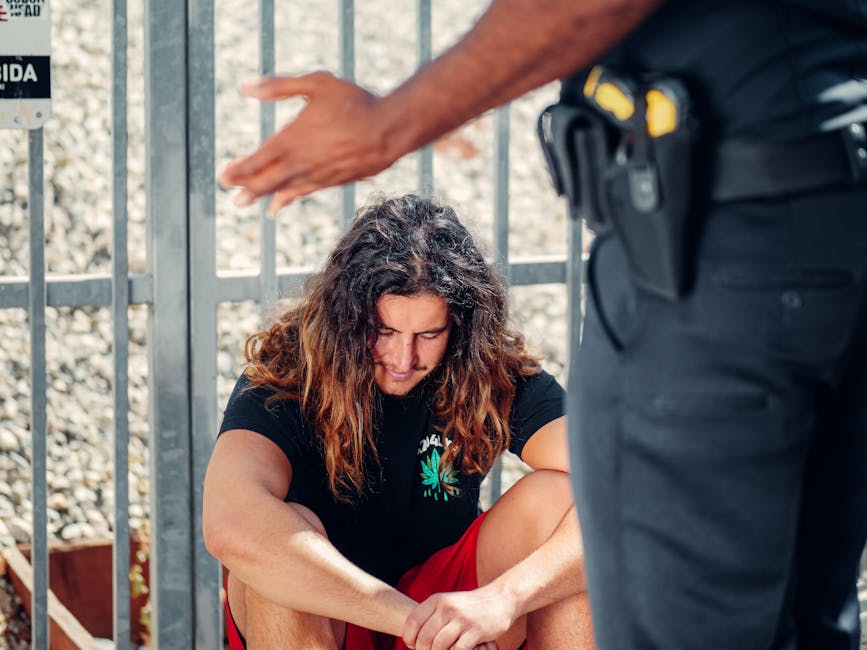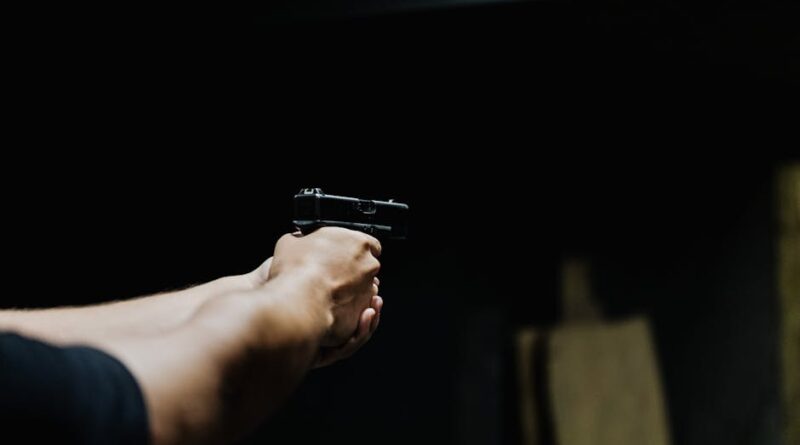Gun Control: Balancing Rights and Safety
Did you know that about 40% of gun sales in the U.S. happen without a background check? This startling fact raises many questions about gun control, rights, and safety. In a country that cherishes freedom, how do we also ensure safety for everyone? Lets explore this complex issue together.
What Is Gun Control?

Gun control refers to laws and policies that regulate the manufacture, sale, transfer, possession, and use of firearms. The goal is to prevent gun violence and promote public safety. it’s a topic that sparks passionate debates, fueled by differing opinions on rights and safety.
Why Is Gun Control Important?

Gun control is essential because it aims to reduce gun violence. In the U.S., gun deaths average over 40,000 each year, including homicides and suicides. This number is staggering and raises concerns about our communities’ safety.
Some argue that more guns equal more safety. However, research suggests otherwise. Countries with stricter gun laws often have lower rates of gun violence. For instance, in Japan, private gun ownership is rare, leading to very few gun-related deaths.
What Are People Saying?

Opinions on gun control vary widely. Some people believe in the Second Amendment, which gives citizens the right to bear arms. They argue that owning a gun is a fundamental right. Others believe that stricter laws are necessary to keep guns away from dangerous individuals.
Experts like David Hemenway, a professor at Harvard, state, “More guns do not equal more safety.” This perspective suggests that solutions lie not in more guns but in better regulations.
What Are the Main Arguments For Gun Control?

Supporters of gun control present several key arguments:
- Reducing gun violence: Stricter laws can help prevent mass shootings and everyday gun deaths.
- Preventing access for high-risk individuals: Background checks can keep guns out of the hands of criminals and those with mental health issues.
- International examples: Countries with strict gun laws see fewer gun-related deaths.
What Are the Arguments Against Gun Control?
On the flip side, many oppose stricter gun control laws. Here are some of their main points:
- Second Amendment rights: Gun owners believe they should have the freedom to own firearms without excessive regulation.
- Self-defense: Many argue that owning a gun is crucial for personal safety.
- Criminals don’t follow laws: Some believe that stricter laws only disarm law-abiding citizens, not criminals.
How Do Background Checks Work?
Background checks are a crucial part of the gun control debate. They involve checking an individuals criminal history and mental health records before allowing them to purchase a gun. Heres how it typically works:
- A person wants to buy a gun.
- The seller runs a background check through the National Instant Criminal Background Check System (NICS).
- If the person passes, they can buy the gun. If not, the sale is denied.
Background checks can prevent guns from getting into the wrong hands. However, they are not universal; about 22 states and the District of Columbia have laws requiring background checks for all gun sales, while others have loopholes.
What Are Red Flag Laws?
Red flag laws allow authorities to temporarily remove guns from individuals deemed a danger to themselves or others. These laws vary by state but generally involve a court process.
For example, if someone makes threats of violence, family or friends can petition the court to remove their firearms. This proactive approach aims to prevent potential tragedies before they happen.
What Are the Challenges to Gun Control?
Implementing effective gun control laws faces many challenges. Here are a few:
- Political divide: Gun control often falls into partisan politics, leading to gridlock in Congress.
- Cultural attitudes: In some parts of the U.S., gun ownership is part of the culture, making changes difficult.
- Enforcement: Even if laws are passed, enforcing them can be a challenge, especially in areas with high gun crime rates.
What Can Be Done to Find Balance?
Finding a balance between rights and safety is crucial. Here are some suggestions:
- Promote education: Teach gun safety and responsible ownership to both children and adults.
- Encourage dialogue: Foster conversations between gun owners and those who advocate for stricter laws to understand each others views.
- Support research: Fund studies to better understand the impact of gun laws on violence.
What Are Some Successful Examples of Gun Control?
Some states have successfully implemented gun control measures that show promise:
- California: This state has strict gun laws and a strong focus on mental health, leading to lower gun violence rates.
- New York: Following its own set of strict regulations, New York has seen a decrease in gun-related deaths.
Is There a Middle Ground?
Many people believe that common ground can be found. For instance, universal background checks may be an acceptable compromise for both sides. This way, we respect the right to own a firearm while also preventing guns from falling into dangerous hands.
What Can You Do?
You can take action in various ways:
- Educate yourself: Learn more about gun laws in your area and their effects on public safety.
- Engage in discussions: Talk to friends and family about their views on gun control to help bridge divides.
- Advocate for change: Support organizations that promote responsible gun ownership and sensible regulations.
Conclusion: The Path Forward
Gun control is a complex issue, but it’s essential for our safety and rights. Striking a balance between the right to bear arms and the need for public safety is crucial. By engaging in constructive dialogue and promoting sensible regulations, we can work towards safer communities. Remember, it’s not just about guns; it’s about lives.
For more information on gun safety and laws, visit Giffords Law Center.



